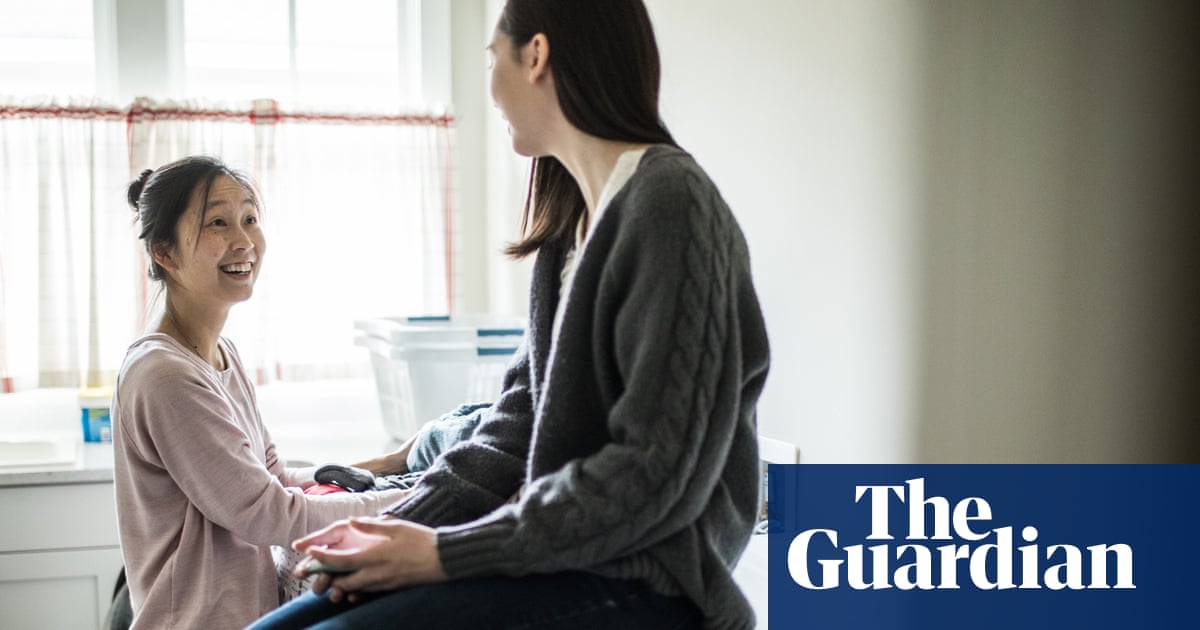Adolescent girls who lived through Covid lockdowns experienced more rapid brain ageing than boys, according to data that suggests the social restrictions had a disproportionate impact on them.
MRI scans found evidence of premature brain ageing in both boys and girls, but girls’ brains appeared on average 4.2 years older than expected after lockdowns, compared with 1.4 years older for boys.
It is unclear whether the changes have negative consequences, but the findings have raised concerns that they might affect adolescents’ mental health and potential to learn.
“We were shocked by these data, that the difference is so dramatic,” said Prof Patricia Kuhl, co-director of the Institute for Learning and Brain Sciences at the University of Washington, in Seattle.
The researchers gathered MRI scans from 160 nine- to 17-year-olds in 2018 and used them to build a model of how the brain’s cortex normally thins during school years. Some cortical thinning is natural and an important part of brain maturation and specialisation in adolescence.
The team revisited the same cohort in 2021 and 2022, after lockdowns, and collected further MRI scans from those aged 12 to 16. Compared with pre-pandemic brain development, these showed signs of accelerated cortical thinning in one area of the boys’ brains, and in 30 of the girls’ brains, across both hemispheres and all lobes.
Other researchers have linked premature brain ageing to the pandemic, but the latest study, in Proceedings of the National Academy of Sciences, is the first to reveal stark differences between boys and girls.
Both sexes showed signs of accelerated ageing in a brain region linked to vision, potentially affecting the processing of faces. But in females, brain changes were widespread. Many affected areas underpinning social cognition with roles in processing emotions, interpreting facial expressions and language comprehension, which the researchers say are critical for communication.
Kuhl believes the difference reflects girls’ greater dependence on social groups and interactions. “Girls chat endlessly and share their emotions,” she said. “They are much more dependent [than boys] on the social scene for their wellbeing and for their healthy neural, physical and emotional development.”
More studies are needed to see whether the brain ageing affects cognitive performance, but Kuhl notes that premature cortical thinning is linked to early life adversity and a greater risk of neuropsychiatric disorders. Cortical thinning is crucial for the brain to specialise, but that comes with a loss of cognitive flexibility that could potentially affect learning.
Kuhl said the findings were a “reminder of the fragility of teens” and suggested parents talk to their teenagers about their experiences of the pandemic. “It’s important they invite their teens for a coffee, for a tea, for a walk, to open the door to conversation,” she said. “Whatever it takes to get them to open up.”
“It’s important to recognise that although the pandemic is largely over, the effects of the stress of the pandemic are still there for children and adolescents,” said Ian Gotlib, a professor of psychology at Stanford University who has reported similar brain changes. “Making sure that youth are supported in terms of their mental health is critical, perhaps now more than ever before.”
“This adds to our understanding that adolescents experienced accelerated brain changes due to the Covid-19 pandemic,” said Dr Lina van Drunen, a researcher at Leiden University in the Netherlands, who has reported similar brain changes in adolescents. Identifying the specific factors behind the premature ageing and understanding its long-term impacts was now key, she added.







